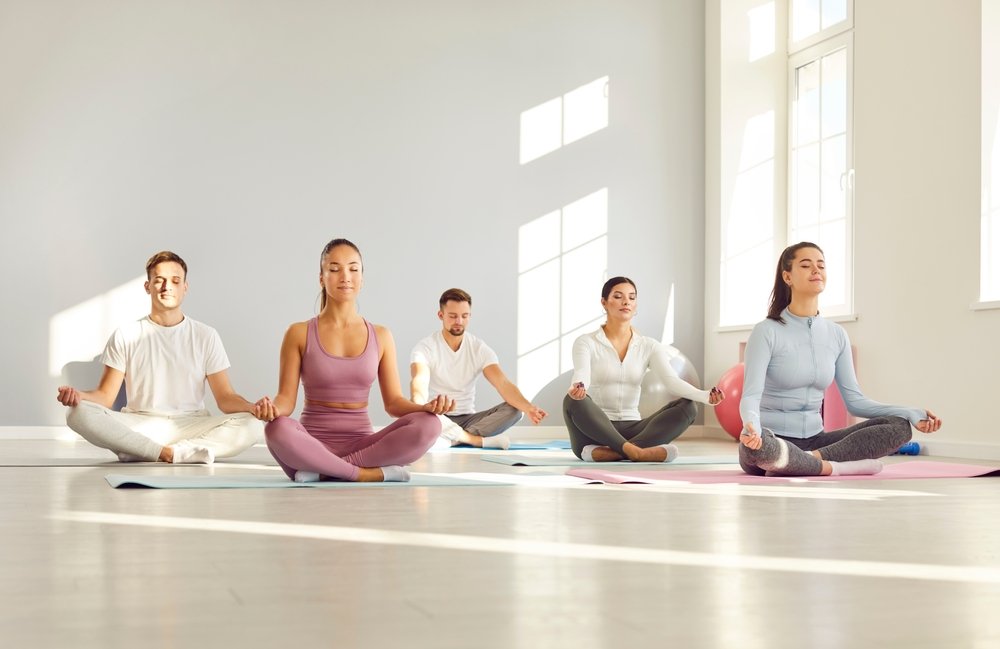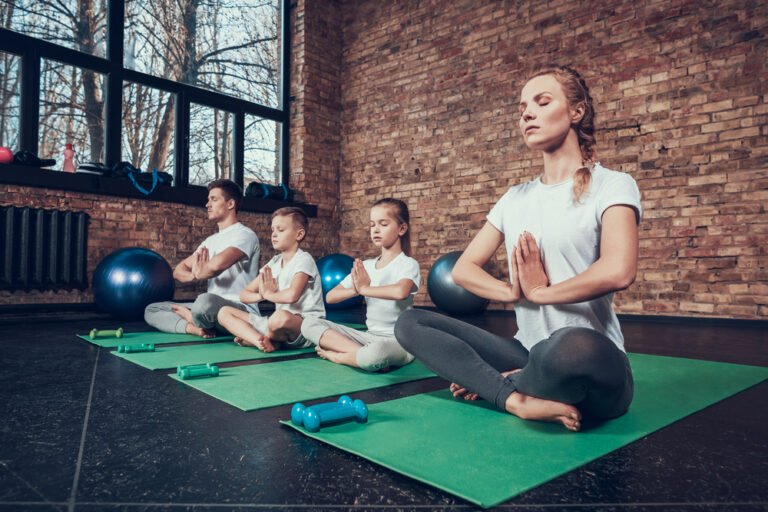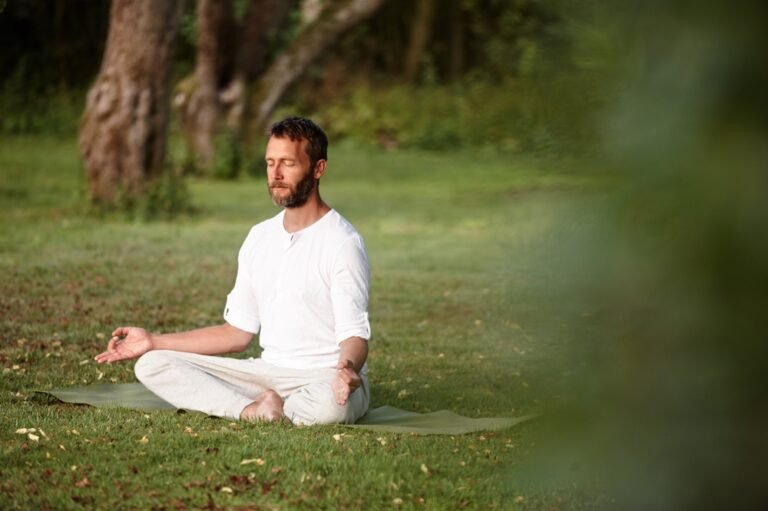Virtual Reality Yoga vs. Studio Yoga: What’s More Effective?
Hello, yogis and interested folks!
You must have heard about virtual reality and its impact and benefits in various industries, but here is something that we want to tell you that you might not have heard of.
It is your approachable yoga teachers here, and we want to explore something that has been swimming around in wellness-based conversations lately: virtual reality yoga vs. studio yoga. As technology continues to integrate with all areas of our lives, it is only natural to contemplate if we can responsibly practice something so ancient as yoga in a digital space. At Maa Shakti Yog Bali, we’ve been reflecting on how technology is changing traditional practices like yoga, and we want to explore something that’s been swimming around in wellness-based conversations lately.
So grab your favorite cup of something warm, get relaxed, and let’s talk about what you think is a better approach to your yoga journey!
The Emergence of VR Yoga: A Brave New World
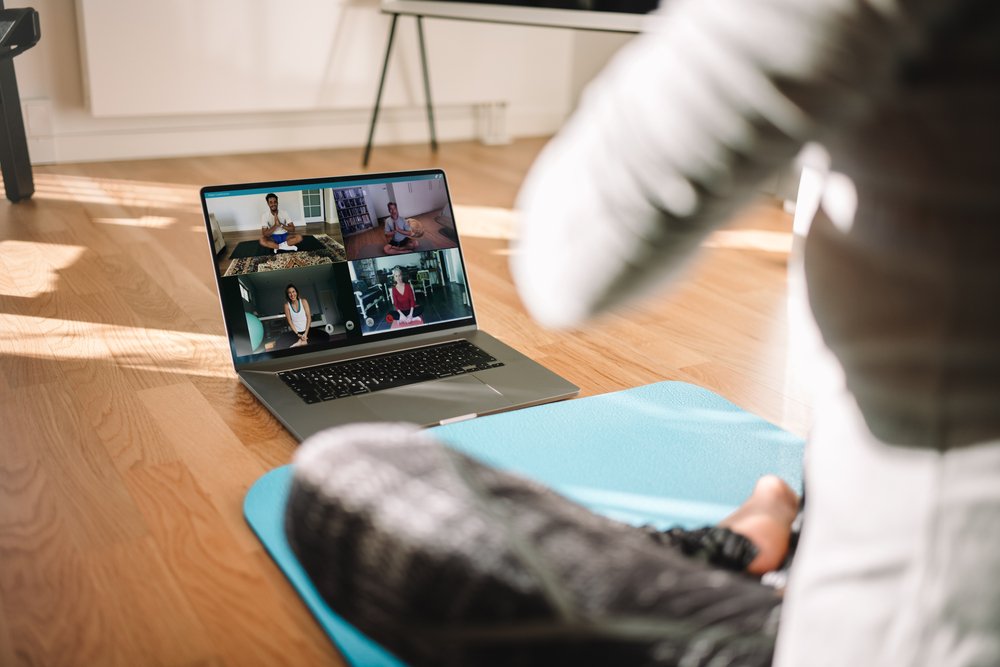
Also Read: Top 5 Yoga Teachers Training Programs in Bali
VR yoga is a very new concept, so we’ll spend some time exploring the full potential of VR yoga from the comfort of your own home. You roll out your mat, and suddenly you are on a beach at sunset, in a forest of trees that are off in the distance, or you are in your head with the glowing yellow walls of a sci-fi meditation room! Pretty amazing, right?
Pros of VR yoga:
- Convenience: No commute, no parking, and no reason to rush out the door. You can practice anywhere you want anytime you want; there doesn’t have to be a fixed timing for it, and it fits within your already busy life.
- Accessibility: VR yoga offers new possibilities for movement, as you will be practicing all alone without any concern for judgment, and if you have a mobility challenge, have access to a studio, or have social anxiety.
- Novelty and Engagement: The immersive spaces can be highly motivating and induce excitement and freshness into your practice.
- Privacy: If you like practicing privately, VR allows you to explore your movements and breath in a completely private space.
Cons of VR Yoga:
- Lack of Hands-On Adjustments: Not unexpectedly, as you know, practicing in a virtual world is a big disadvantage. A studio instructor can provide both personal comments and physical adjustments to help you safely strengthen a position.
- Technical Glitches: Like any technology, you may experience missed buffering, connectivity issues, or equipment malfunctions.
- Initial Investment: One of the VR headsets can be a considerable investment.
- The initial distraction: While still offering immersion into the practice, the VR nature presents a different digital distraction than being in a dedicated studio space.
The Timeless Appeal of Studio Yoga: A Community Affair
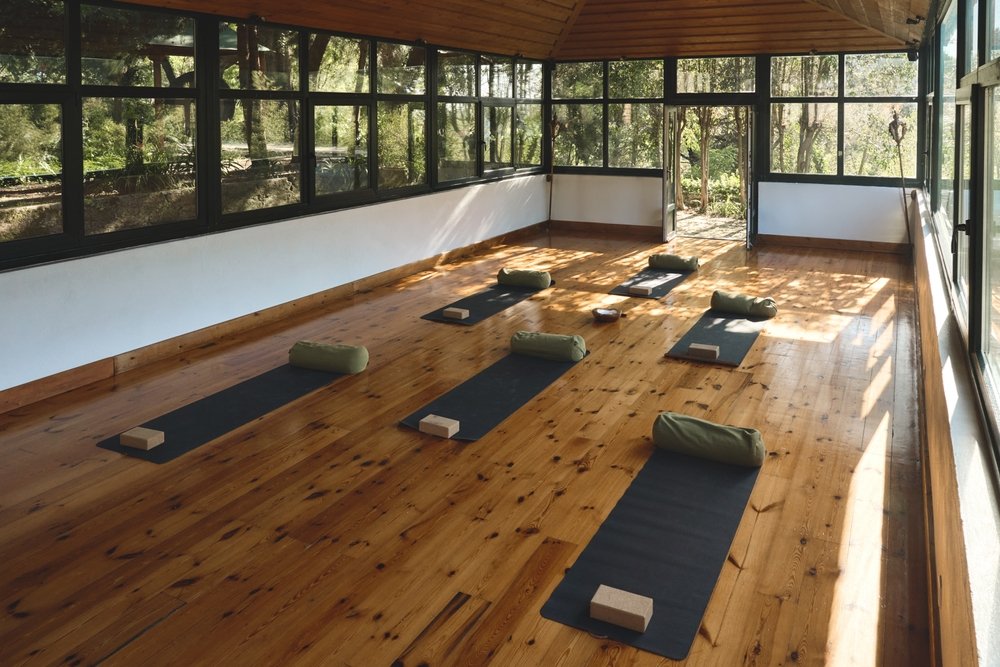
The studio is a sanctuary for many of us—it is a space for peace, growth, and community. There is a special energy cultivated when you’re in the same space or energy, being physically guided by an instructor, surrounded by other humans supporting their own practice, all together, in hopes of deepening their own and others’ experience.
Pros of Studio Yoga:
- Expert Guidance and Adjustments: This is arguably the greatest advantage. A qualified instructor with hands-on experience and practice in teaching can observe your alignment, offer verbal cues, and make touch adjustments to help you avoid injuries and refine your practice and can also provide you with the modifications as well. For example, in a 200 Hour Yoga Teacher Training Course in Bali, students benefit from continuous hands-on guidance, learning proper alignment and safe modifications right from the start.
- Community and Connection: There is a special bond of energy that develops in a yoga studio. Sharing space, breath, and energy creates a true sense of belonging and encourages you.
- Dedicated Space: When you walk into the studio, you are signaling to your mind and body that it is go-time! You are in a specially designed environment created specifically for the practice, free of the distractions of home.
- Motivation and accountability: When you commit to a time and location and pay for it specifically for a class, it frequently provides that extra push we all need, that we have to do it. It mostly works like a reminder for good health.
Cons of Studio Yoga:
- Time and Travel: If the studio is quite far from the place you live, then getting to and from the yoga studio takes longer. If traffic can be difficult, or if the studio is particularly far from home, you are spending even more time on yoga (and not yourself!).
- Cost: Getting a studio membership can end up being more expensive than an online subscription or a one-time VR purchase.
- Scheduling Conflict: Practicing in a studio requires a particular set of times that you will choose, and you are at the mercy of the studio’s timetable, which may not always correspond to your availability.
- Less privacy: Some people may feel uncomfortable practicing in front of others, which may directly lead to a lack of motivation and discomfort, resulting in not showing up for the practice.
So, what’s more effective? The Verdict!
Ok, time for the million-dollar question…which is more effective?
Frankly, there isn’t a single “right” response. Studio yoga and VR yoga both have amazing advantages, and ultimately the best option depends on YOU—your lifestyle, your learning style, your budget, and what you are hoping to experience through your practice.
- For Beginners: We tend to recommend studio yoga. The individual adjustments and instructor feedback are so helpful for putting down a safe and strong foundation. And it will be great for you to make yourself at ease with some gentle practice under the observation of an experienced instructor.
- For Experienced Yogis: If you understand alignment and have an awareness of your own body, VR yoga could be a wonderful supplement to keep you consistent and with variety.
- For a Busy Lifestyle: VR yoga or high-quality online streaming classes give you the ultimate flexibility. As you can practice at any point in time and from anywhere, you don’t have to stick to a strict time schedule to pursue a healthy and fit lifestyle.
- For Community and Depth: If you value the social aspect and having the benefit of hands-on instruction, studio yoga will probably be much more rewarding.
What about a hybrid experience?
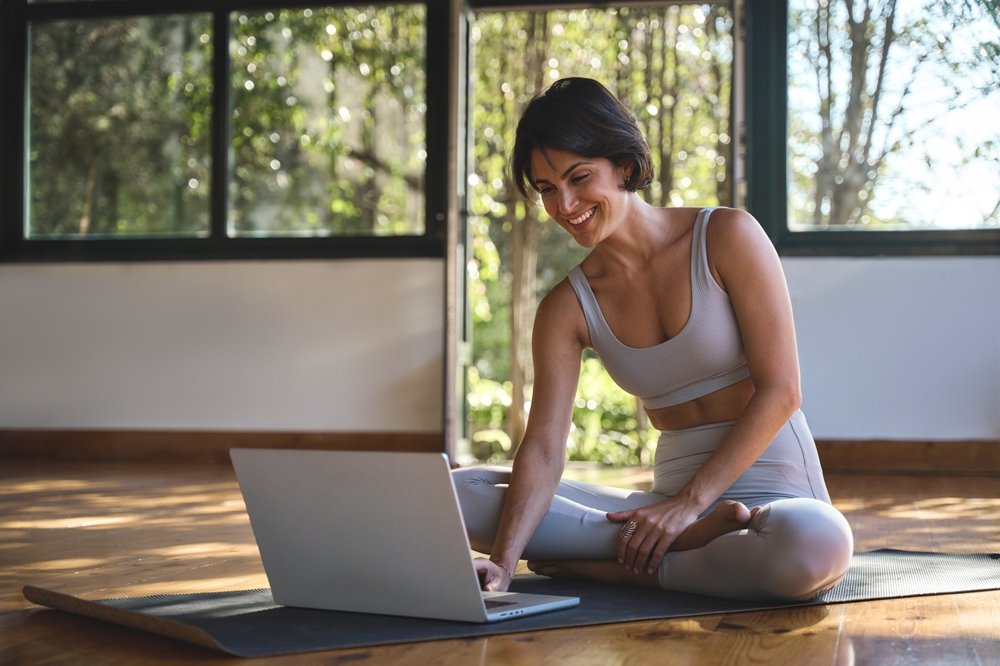
Why not have the best of both experiences? A lot of yogis find the hybrid approach to be the most effective overall! Regularly attend studio classes for guidance and energy!! Supplement with VR yoga and online classes, from your house, for learning and ease.
Regardless, the end goal of yoga is to connect with your breath, your body, and your true self. Whether this connection is on a mat in a busy studio or within a virtual calming space, it is the experience that counts. And to make the correct decision, it is great to create a checklist of the things you can and cannot do and, based on that, choose the one that best fits your requirements, time, and preferences.
What do you think? Have you practiced yoga in VR? What is your favorite way to practice? Share your practice with me in the comments—we’re intrigued!
Namaste

